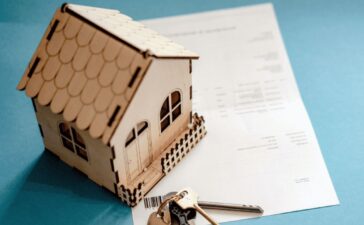If you’re like most homeowners, you’ve probably thought about renovating or expanding your home at some point. While this can be a great way to increase the value of your home and make it more comfortable to live in, it’s important to understand the building laws in your area before starting any construction projects. In this blog post, we will discuss four of the most important building laws to consider when renovating or expanding your home. Keep these in mind as you begin planning your project, and be sure to contact a qualified contractor if you have any questions!
1) Local zoning ordinances
The first building law to consider is your local zoning ordinances. These laws dictate where and how you can build on your property, so it’s important to be familiar with them before beginning any construction projects.
Zoning ordinances can be a bit complicated, but in general, they exist to prevent homes from being built too close together and to ensure that new construction projects fit in with the existing character of the neighborhood.
If you’re not sure what the zoning ordinances are in your area, you can usually find them online or by contacting your local planning department.
2) Building permits
It’s important to obtain any necessary building permits before starting any construction work on your home. Building permits are required for most major construction projects, and they help to ensure that the work is being done according to local building codes. For example, a building permit may be required if you’re planning to add an addition to your home or make any major changes to the electrical or plumbing systems.
You can usually apply for a building permit online or in person at your local planning department. Be sure to submit all of the required paperwork and pay any associated fees before beginning work on your project.
In some cases, you may be able to get a permit exemption if you’re doing minor work that doesn’t require structural changes to your home. However, it’s always best to check with your local planning department to be sure because building codes can vary from one area to the next. So it’s important to understand the building law in your area before starting any construction projects.
A contractor can help you with the paperwork needed for your building permit and they will also be able to guide you through the process of renovating or expanding your home.
3) Balcony Inspection Laws
If you’re planning to add a balcony to your home, be sure to familiarize yourself with your local balcony inspection laws. These laws vary from area to area, but in general, they exist to ensure that balconies are structurally sound and safe for use.
Most areas require balconies to be inspected by a qualified inspector before they can be used. Be sure to contact your local planning department to find out the inspection requirements in your area. For example, if you are in California make sure you check California balcony inspection laws before starting construction. In some cases, you may also be required to obtain a permit for your balcony. Balcony inspection laws exist to protect both homeowners and renters from unsafe balconies. By familiarizing yourself with these laws before starting construction on your balcony, you can help to ensure a safe and enjoyable space for yourself and your guests.
4) Fence Laws
Another building law to be aware of is your local fence law. Fence laws vary from area to area, but in general, they exist to regulate the height and placement of fences around properties. For example, some areas may have laws that dictate how close a fence can be to the property line, or how high it can be.
If you’re planning to install a fence on your property, be sure to check with your local planning department to find out the fence laws in your area. Fence laws exist to promote public safety and maintain order in neighborhoods. In addition, they can help to prevent disputes between neighbors. And also helps to make sure that your fence meets all the requirements.
Building laws are in place to help ensure that all construction projects meet local safety and zoning regulations. By familiarizing yourself with these laws before beginning your renovation or expansion project, you can avoid costly fines and delays. It’s also important to contact your local planning department if you have any questions about the building codes in your area. By doing your research and staying compliant with the law, you can help to ensure a smooth and successful construction project. Thank you for reading!





